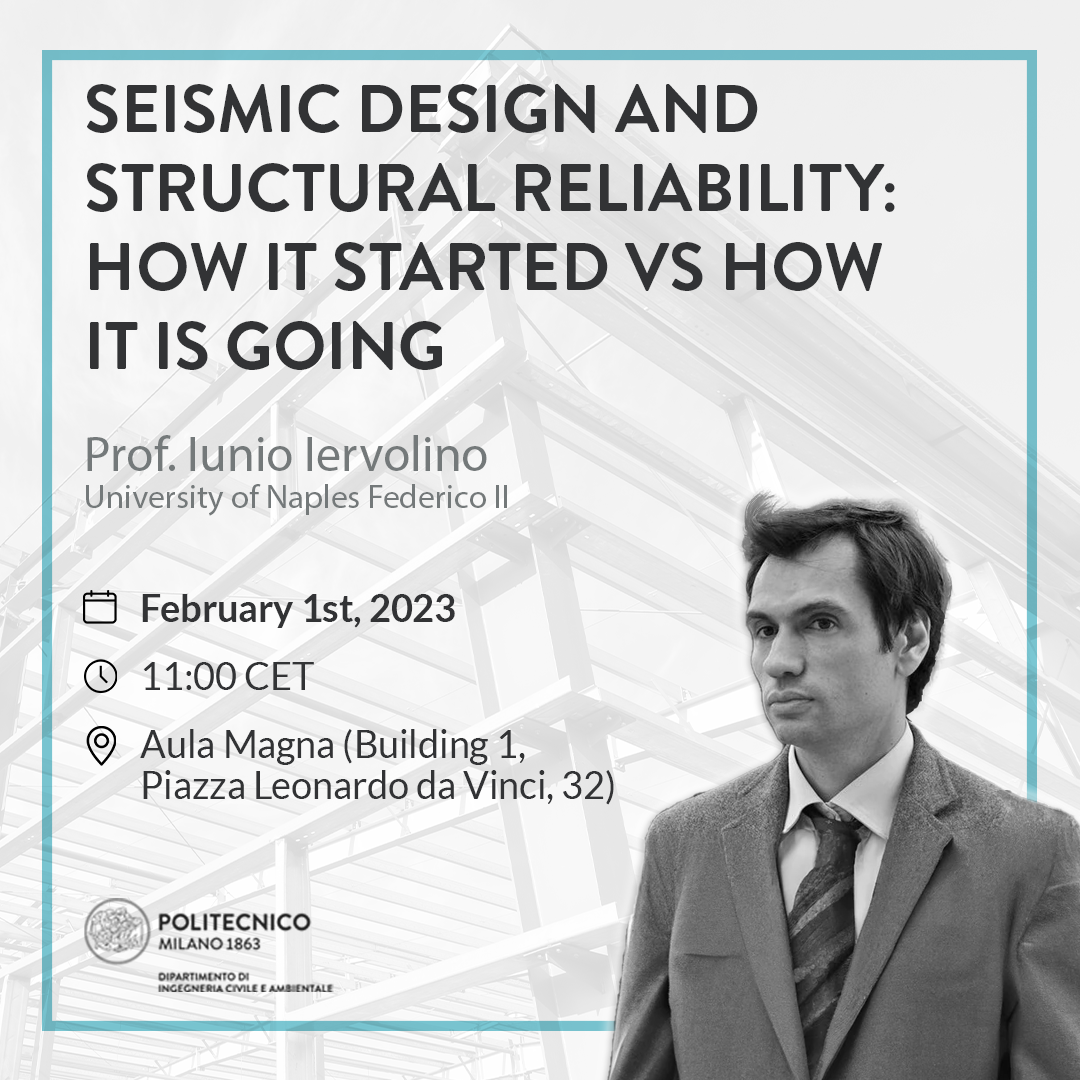
- This event has passed.
Seismic Design and Structural Reliability: how it started vs how it is going
1 February 2023 @ 11:00 - 12:30

On Wednedsay 1st February, a seminar entitled “Seismic design and structural reliability: how it started vs how it is going” held by Prof. Iunio Iervolino, professor of Structural Engineering at the University of Naples Federico II and at IUSS of Pavia, will take place in Aula Magna (Building 1 – Piazza Leonardo da Vinci, 32).
Abstract:
Modern era building codes generally state accepted levels of structural reliability. However, in the case of seismic action, design is often performed via a (largely) simplified version of performance-based design, in which only the design ground motion intensity is established based on an explicit probabilistic approach. It follows that, not only the reliability achieved by design is not known to the practitioner, but also that structures of different typologies and/or with different construction site, may show failure probabilities differing by orders of magnitude. In the seminar this is shown with reference to the case of structures (i.e., buildings and bridges) designed according to the current Italian building code, which has large similarities with Eurocode 8. It is also discussed that the main causes are to be searched in the lumped use of site-specific probabilistic seismic hazard, and the code-prescribed minima (including in this the effect of gravity-load design) in areas of low-to-moderate seismicity. Nevertheless, despite these known limitations, it is also shown that the current approach to seismic design has led to a systematic improvement of structural reliability with respect to the approaches pursued in now-obsolete building codes. Finally, the current trends toward the evolution of seismic design are briefly highlighted.
Speaker’s bio:
Iunio Iervolino is full professor of Structural Engineering at the University of Naples Federico II and at IUSS of Pavia. Iunio has two masters, one in Management Engineering and one in Seismic Risk Reduction earned at IUSS, and one Ph.D. in Seismic Risk. He teaches grad and undergrad courses related to Earthquake Engineering and Structural Dynamics, Structural Engineering, and Seismic Risk & Reliability of Structures. He also coordinates the Ph.D. program in Structural & Geotechnical Engineering and Seismic risk at Federico II. His research revolves around the fields of risk analysis of industrial and civil infrastructure systems, earthquake engineering, structural reliability, engineering seismology and probabilistic hazard analysis. He has authored about three hundred publications and, as of 2022, his H-index is 40 according to SCOPUS. Iunio has advised about twenty Ph.D. theses so far, and his former students are employed in the industry of insurance and risk analysis or academia worldwide. Among awards and honors, Iunio received the AXA research fund grant in 2011, and in 2014 he was appointed Fulbright visiting professor at Stanford University. He is editorial board member of several scientific journals, such as Earthquake Engineering and Structural Dynamics and Computer Aided Civil and Infrastructure Engineering, and serves as associate editor of Soil Dynamics and Earthquake Engineering, Frontiers in Earthquake Engineering and others.
